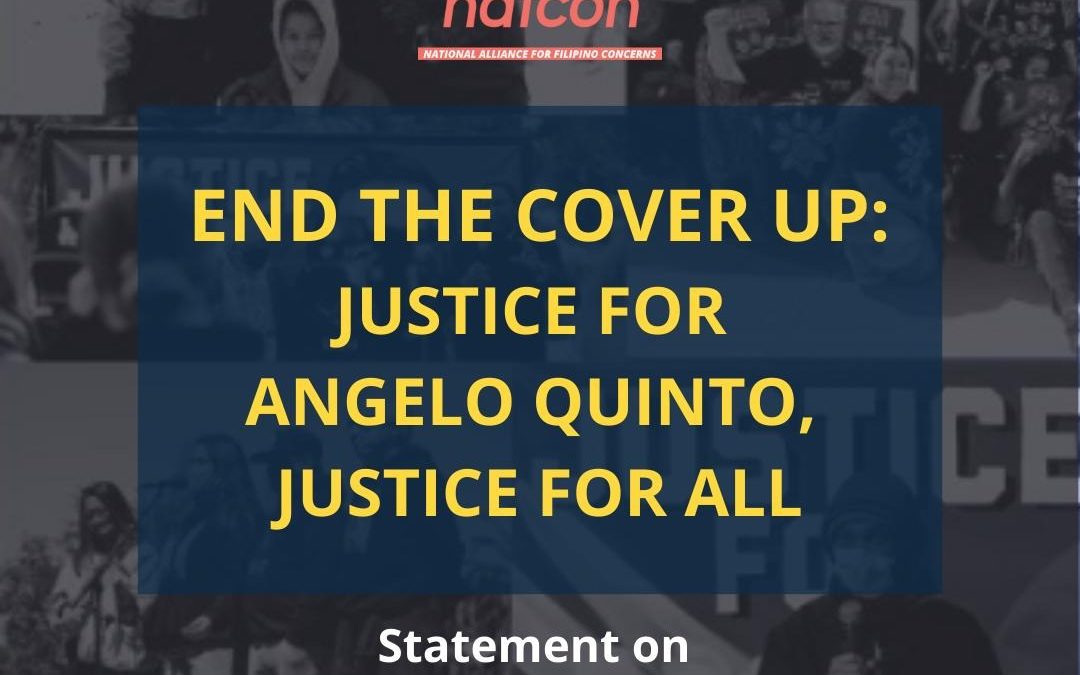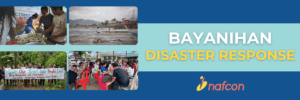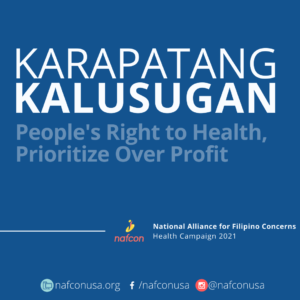Justice for Angelo Quinto 3/17/23
On March 17th, the family of Angelo Quinto held a press conference to publicly contest the police’s justifications for the murder of a beloved son and brother while he suffered from a mental health crisis.
On December 23rd, 2020, Angelo Quinto, a 30-year old Filipino navy veteran experiencing a mental health crisis, died in the custody of Antioch police officers. Officers restrained Quinto with a knee on the back of his neck and he eventually lost consciousness. When paramedics arrived, Angelo was not breathing and his heart had stopped. After Angelo was taken to the hospital, his family was denied access to visit him and prevented from learning about Angelo’s medical condition. Three days later, Angelo was declared dead. Months later, the Contra Costa county coroner ruled Quinto’s death an accident and due to “excited delirium”, a term that has been a diagnosis for medical examiners and coroners to explain deaths in police custody, which are disproportionately the deaths of Black men and people of color.
Over two years after the incident, the Quinto family’s attorneys announced that new information from a private pathologist concluded that Angelo’s cause of death was positional asphyxiation, which directly contradicts the Contra Costa coroner’s initial autopsy. The Quinto family has always maintained that two crimes were committed the night of December 23rd: one was the excessive force that killed Angelo and the other was the subsequent cover-up of his death. Even in the fight against an unjust system, the Quinto family’s struggle for accountability and systemic change encourages solidarity, community organizing, and initiatives that address the root causes of police violence.
As NAFCON, we stand in our commitment to work side-by-side with the Quinto-Collins family and community members to demand victim support and amplify their calls for justice and accountability. We echo the family’s calls for the Contra Costa County court to end the cover-up and overturn the cause of Angelo’s death from an accident to a homicide and hold the law enforcement and justice system accountable.
We recognize the historical roots of policing as rooted in chattel slavery in the South. We stand in solidarity with Black, Brown, and Indigenous communities fighting for decades to hold police accountable. Policing and the violence it enables is also a public health issue: responses to community members’ concerns for the health and safety of themself or loved ones should promote the health and dignity of the whole person. We envision a free, comprehensive, and progressive model of care that prioritizes health as a fundamental right.
The fight for justice and accountability can be a long and discouraging process, especially for the powerless. But coming together as a community to challenge systems grows our collective capacity for change. We encourage our community members to be beside the Quinto-Collins family as they seek truth and justice for Angelo and many other victims of police brutality.
###



